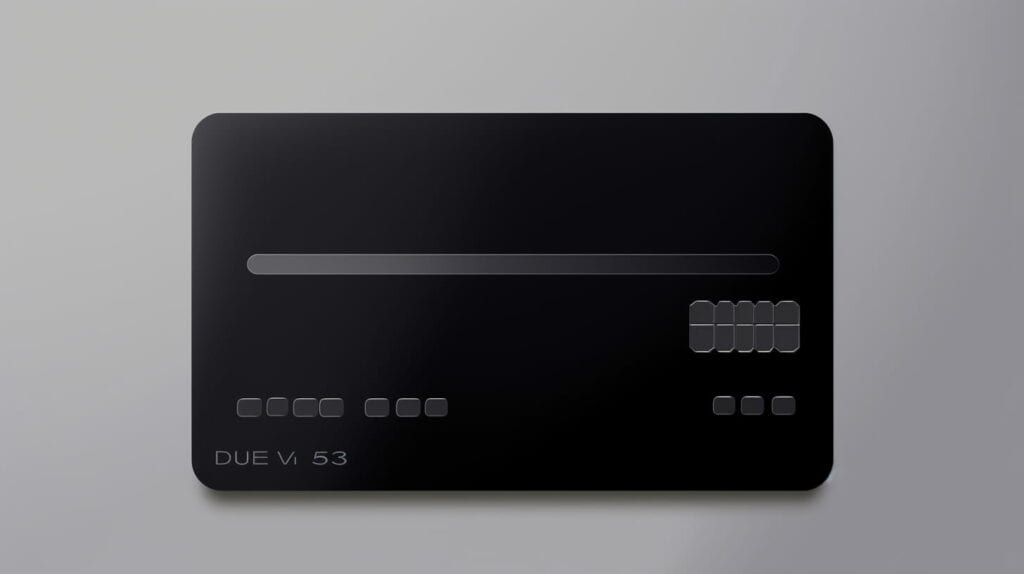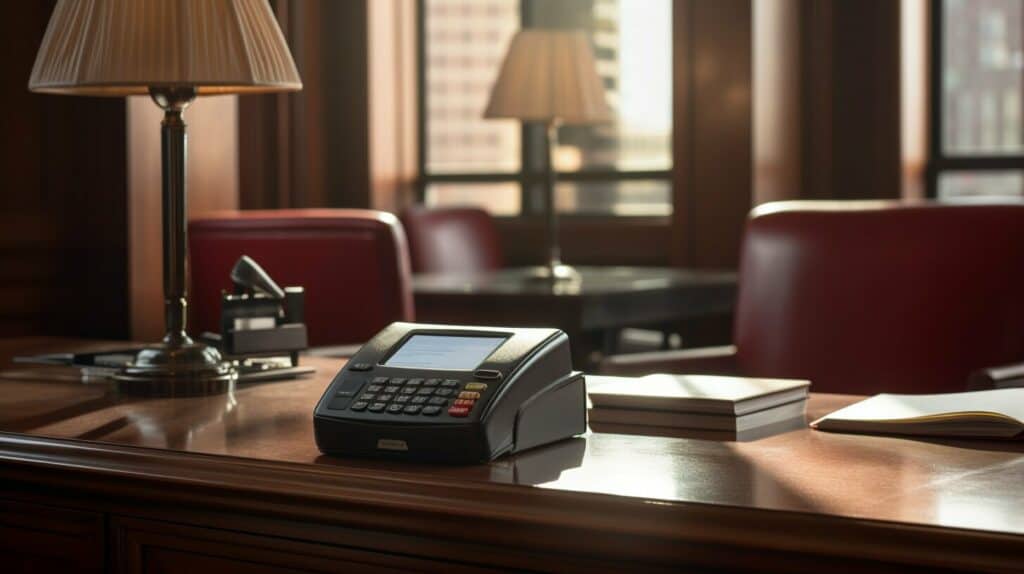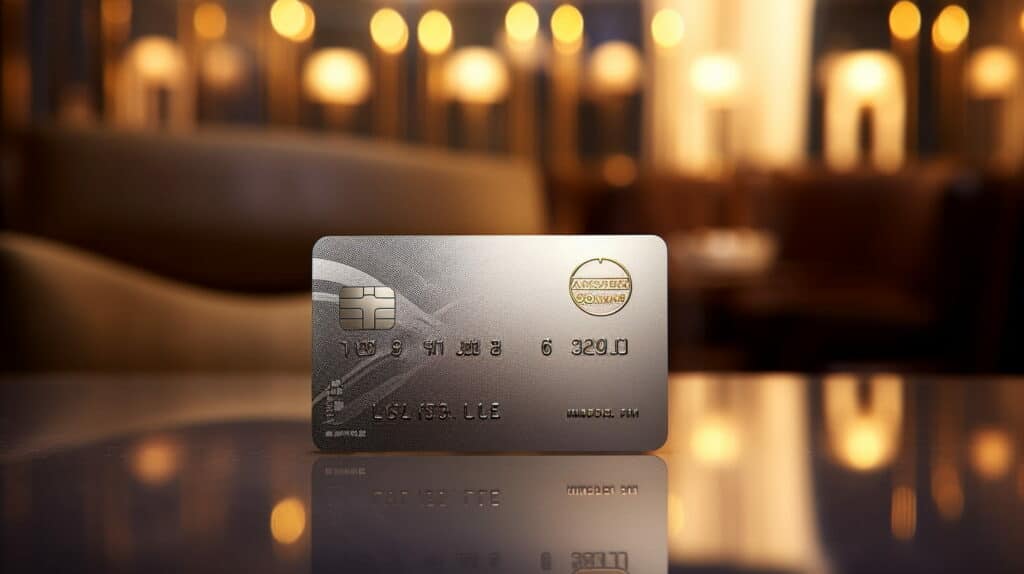Unlocking Dynamic Currency Conversion (DCC) in Credit Card Processing
Dynamic Currency Conversion (DCC) in credit card processing brings convenience and transparency to international transactions, but it’s important to understand its implications. DCC allows credit card holders to make purchases in a foreign country using their home currency, provided by the merchant. While this service may seem appealing, it often comes with higher exchange rates and additional fees compared to making purchases in the local currency.
Customers have the right to decline DCC transactions, and it’s crucial to weigh the benefits and drawbacks before making a decision. Some advantages of DCC include locked-in exchange rates, real-time visibility of the exchange rate, and easier price comparison. However, it’s important to consider the potential disadvantages, such as unknown markups, additional transaction fees, and potentially higher foreign transaction fees.
For merchants, offering DCC can bring additional revenue, enhance customer experience, and reduce chargebacks. However, there are also challenges to consider, including confusing customers, loss of control over exchange rates, potential lower sales, and compliance and regulatory issues.
Key Takeaways:
- DCC in credit card processing allows purchases in a foreign country using the home currency, provided by the merchant.
- Advantages of DCC include locked-in exchange rates, real-time visibility of the exchange rate, and easier price comparison.
- Disadvantages of DCC include unknown markups, additional transaction fees, and potentially higher foreign transaction fees.
- Merchants offering DCC can benefit from additional revenue, enhanced customer experience, and reduced chargebacks.
- Customers have the right to decline DCC transactions and can choose to pay in the local currency instead.
Understanding Dynamic Currency Conversion (DCC) and its Process
Cross-border transactions can be made seamless with Dynamic Currency Conversion (DCC) in credit card processing, thanks to the global payment processing systems and multi-currency capabilities. DCC allows credit card holders to make purchases in a foreign country using their home currency, providing them with convenience and transparency. However, it is important to understand the process behind DCC to make informed choices during international transactions.
When a customer initiates a cross-border transaction, the payment gateway services enable the conversion of the transaction amount from the local currency to the customer’s home currency in real-time. This conversion is based on the current exchange rate and may include additional fees imposed by the card issuer or payment processor. The customer is then presented with the converted amount in their home currency, giving them the option to pay in that currency or in the local currency.
One of the advantages of DCC is the ability to lock-in exchange rates, allowing customers to know the exact amount they will be charged in their home currency. This eliminates the uncertainty associated with fluctuating exchange rates. Additionally, real-time visibility of the exchange rate empowers customers to make informed decisions by comparing prices accurately. It also simplifies price comparison between different vendors, enabling customers to find the best deal for their purchases.
| Advantages of DCC | Disadvantages of DCC |
|---|---|
|
|
While DCC offers these advantages, it is important for customers to be cautious of potential disadvantages. Unknown markups in the exchange rate may result in customers paying more than necessary. Additional transaction fees may also be charged, reducing the overall value of the purchase. Furthermore, some credit cards may impose higher foreign transaction fees when DCC is used, leading to additional costs for customers.
Understanding the process and implications of Dynamic Currency Conversion (DCC) allows customers to make informed choices during cross-border transactions. By carefully considering the advantages and disadvantages of DCC, customers can decide whether to opt for DCC or choose to pay in the local currency. Utilizing credit cards without foreign transaction fees or exchanging currency at reputable banks or ATMs affiliated with their home bank can also help customers save money while traveling.
Pros and Cons of Dynamic Currency Conversion (DCC)
Dynamic Currency Conversion (DCC) offers benefits like locked-in exchange rates and real-time visibility, but it also comes with potential drawbacks such as additional fees and unknown markups. Let’s take a closer look at the pros and cons of using DCC in credit card processing.
Advantages of Dynamic Currency Conversion (DCC)
- Locked-In Exchange Rates: With DCC, customers can enjoy the convenience of knowing the exact exchange rate at the time of purchase. This eliminates the uncertainty of fluctuating exchange rates and provides peace of mind.
- Real-Time Visibility of the Exchange Rate: DCC allows customers to see the exchange rate in real-time, giving them transparency and the ability to make informed decisions. This feature enables accurate price comparison, making it easier to budget and manage expenses while abroad.
- Easier Price Comparison: DCC simplifies the process of comparing prices in different currencies. By converting the purchase amount into the customer’s home currency, it facilitates quick and accurate price comparisons, helping customers make more informed purchasing decisions.
Disadvantages of Dynamic Currency Conversion (DCC)
- Unknown Markups: While DCC offers the convenience of paying in your home currency, some merchants may apply undisclosed markups to the exchange rate. These hidden fees can result in customers paying more for their purchases than they would if they had paid in the local currency.
- Additional Transaction Fees: In addition to potential markups, DCC transactions may also incur additional fees that can further increase the cost of purchases. Customers need to be aware of these fees and evaluate whether the convenience of DCC justifies the extra expense.
- Potentially Higher Foreign Transaction Fees: Opting for DCC may lead to higher foreign transaction fees charged by credit card issuers. It is essential for customers to consider these fees when deciding whether to use DCC or pay in the local currency.
It is important for customers to weigh the advantages and disadvantages of Dynamic Currency Conversion (DCC) before making a decision. While DCC offers convenience and transparency, it may come with additional costs. Understanding the potential drawbacks can help customers make informed choices and ensure they are getting the best value for their money.
| Advantages of DCC | Disadvantages of DCC |
|---|---|
| Locked-In Exchange Rates | Unknown Markups |
| Real-Time Visibility of the Exchange Rate | Additional Transaction Fees |
| Easier Price Comparison | Potentially Higher Foreign Transaction Fees |
Impact of Dynamic Currency Conversion (DCC) on Merchants
Merchants can benefit from offering Dynamic Currency Conversion (DCC) through increased revenue and improved customer experience, but they must also navigate potential challenges and compliance issues. By providing DCC as a payment gateway service, merchants can capture a larger share of international transactions and cater to the diverse needs of their customers.
One of the key advantages of offering DCC is the potential for increased revenue. By enabling customers to pay in their home currency, merchants can tap into a larger customer base and attract more international shoppers. This can lead to higher sales volumes and ultimately boost revenue.
Offering DCC can enhance the overall customer experience. By providing the convenience of paying in familiar currency, merchants can eliminate confusion and simplify the purchasing process for their customers. This can result in higher customer satisfaction and encourage repeat business.
Merchants must also be aware of the challenges and compliance issues associated with DCC. It is crucial to ensure compliance with regulatory requirements and maintain transparency in the exchange rates and fees charged. Failure to do so can lead to customer dissatisfaction, potential legal issues, and damage to the merchant’s reputation.
| Benefits of Offering DCC | Challenges of Offering DCC |
|---|---|
|
|
While Dynamic Currency Conversion (DCC) offers benefits for merchants in terms of increased revenue and improved customer experience, it is important to carefully evaluate the associated challenges and compliance requirements. By understanding the implications of DCC and taking the necessary steps to ensure transparency and compliance, merchants can effectively leverage this payment gateway service and enhance their international business capabilities.

Making Informed Choices: Declining Dynamic Currency Conversion (DCC)
Customers can make informed choices by declining Dynamic Currency Conversion (DCC), opting for the local currency, and exploring alternative payment methods to save money during international transactions. While DCC may seem convenient, it is important to consider the potential drawbacks, such as higher exchange rates and additional fees. By choosing to pay in the local currency, customers can avoid these extra costs and have a better understanding of the true value of their purchases.
When offered DCC, it is advisable to decline and pay in the local currency instead. This allows customers to benefit from more favorable exchange rates provided by their bank or credit card issuer. It also helps avoid unknown markups that can be applied when using DCC. By opting for the local currency, customers can have a clearer picture of the actual cost of their purchases and potentially save money.
In addition to declining DCC, customers should explore alternative payment methods that offer more competitive exchange rates and lower fees. Using credit cards that do not charge foreign transaction fees can be a cost-effective option for international transactions. It is also recommended to exchange currency at banks or ATMs affiliated with the customer’s home bank, as these often offer favorable rates and lower fees compared to currency exchange services at airports or hotels.
Summary
- Declining DCC allows customers to avoid higher exchange rates and additional fees.
- Opting for the local currency provides a clearer understanding of the true cost of purchases.
- Exploring alternative payment methods, such as credit cards without foreign transaction fees and using bank-affiliated ATMs, can help save money during international transactions.
| Advantages of Declining DCC | Disadvantages of DCC |
|---|---|
|
|
The Role of Currency Conversion Services in Credit Card Processing
Currency conversion services play a pivotal role in credit card processing by providing online payment solutions and enabling smooth currency conversions for international transactions. These services allow customers to make purchases in their home currency while shopping abroad, simplifying the payment process and offering convenience.
One of the main advantages of currency conversion services is the ability to offer real-time exchange rate visibility. With this feature, customers can have a clear understanding of the exchange rate at the time of purchase, allowing them to make informed decisions. This transparency helps in avoiding any surprises or uncertainties regarding the cost of their transactions.
Currency conversion services facilitate easier price comparison. By providing the option to pay in the home currency, customers can easily compare prices in real-time between different merchants and make well-informed choices. This not only enhances the customer experience but also encourages healthy competition among businesses.
Currency conversion services in credit card processing offer online payment solutions and enable seamless currency conversions for international transactions. By providing real-time exchange rate visibility and facilitating price comparison, these services aim to enhance customer experience and provide a convenient and transparent payment experience while traveling abroad.
Evaluating the Impact of Dynamic Currency Conversion (DCC) Fees
Dynamic Currency Conversion (DCC) fees can have an impact on both customers and merchants, and it is essential to evaluate their potential costs and benefits. While DCC offers certain advantages, such as locked-in exchange rates and real-time visibility of the exchange rate, it is important to consider the potential drawbacks as well. One of the main concerns for customers is the possibility of unknown markups and additional transaction fees associated with DCC.
When using DCC, customers may face higher exchange rates compared to making purchases in the local currency. This can result in increased costs and reduced savings while traveling. Additionally, some credit card companies may charge additional foreign transaction fees when using DCC, further adding to the overall expenses. Customers should carefully assess these potential costs and determine if the convenience of DCC outweighs the financial implications.
For merchants, offering DCC can bring additional revenue and enhance the overall customer experience. By providing customers with the option to pay in their home currency, merchants can attract international buyers and potentially increase sales. However, merchants must also be aware of the challenges associated with DCC. These include the potential confusion it may cause customers and the loss of control over exchange rates, which can result in dissatisfaction and lower sales.
Impact on Customers and Merchants
DCC fees can impact both customers and merchants in different ways. For customers, evaluating the potential costs and benefits of DCC is crucial to making informed decisions. By being aware of the possible higher exchange rates and additional fees, customers can determine if the convenience of DCC is worth the financial implications. It is important for customers to consider alternatives such as using credit cards without foreign transaction fees and exchanging currency at banks or ATMs affiliated with their home bank to save money while traveling.
For merchants, understanding the impact of DCC fees is essential for strategic decision-making. While offering DCC can provide additional revenue and improve the customer experience, merchants should carefully assess the potential challenges and risks involved. These include the need to comply with regulations, potential lower sales due to confusion or dissatisfaction, and the loss of control over exchange rates. By weighing the benefits and drawbacks, merchants can make informed choices regarding the implementation of DCC in their payment processes.
| DCC BenefitsCredit Card Processing Fees | |
|---|---|
| Locked-in exchange rates | Additional transaction fees |
| Real-time visibility of the exchange rate | Potentially higher foreign transaction fees |
| Easier price comparison |
The Benefits of Real-Time Exchange Rate Visibility
Real-time exchange rate visibility offered by Dynamic Currency Conversion (DCC) empowers customers with accurate price comparison and informed decision-making capabilities. When making international transactions, customers can easily assess the exchange rates being offered and determine whether the DCC option provides better value compared to paying in the local currency.
The real-time visibility of exchange rates allows customers to compare prices in their home currency and make confident purchasing decisions. By knowing the exact exchange rate at the time of the transaction, customers can calculate the cost in their own currency, helping them determine if they are receiving a competitive rate or if alternative options may be more favorable.
Real-time exchange rate visibility provides customers with transparency throughout the transaction process. They can see how the exchange rate is calculated, ensuring there are no hidden markups or fees associated with the DCC service. This transparency builds trust and confidence in the transaction, enabling customers to make well-informed choices.
Comparison of Exchange Rates
| Currency Conversion Option | Exchange Rate | Total Amount |
|---|---|---|
| DCC Option | 1 USD = 0.85 EUR | 85 EUR |
| Local Currency Option | 1 USD = 0.90 EUR | 90 EUR |
As shown in the table, real-time exchange rate visibility allows customers to compare the exchange rates offered by DCC with the rates provided by paying in the local currency. In this example, choosing the local currency option would result in a total amount of 90 EUR, while selecting DCC would only amount to 85 EUR. By having access to this information, customers can make an informed decision based on their preference and financial considerations.
The real-time exchange rate visibility provided by Dynamic Currency Conversion (DCC) offers several benefits to customers, including accurate price comparison, transparency, and the ability to make informed decisions. By leveraging this feature, customers can ensure they are receiving a competitive exchange rate and maximize their purchasing power during international transactions.
The Potential Downsides of Dynamic Currency Conversion (DCC)
While Dynamic Currency Conversion (DCC) offers benefits, customers need to be aware of potential downsides like higher foreign transaction fees and ensure they are not subject to unknown markups. DCC transactions, though convenient, often come with exchange rates that are less favorable compared to those offered by banks or credit card networks. This means that customers may end up paying more for their purchases when opting for DCC.
Additionally, some merchants may apply undisclosed markups when offering DCC, further increasing the cost of the transaction. These hidden fees can add up, resulting in a significant difference when compared to paying in the local currency. It is crucial for customers to carefully review their transaction details and understand the potential fees associated with DCC before making a decision.
Another consideration is the possibility of incurring higher foreign transaction fees when choosing DCC. While using a credit card for international purchases may already entail foreign transaction fees, opting for DCC can sometimes result in additional fees imposed by the merchant or processor. These fees can significantly impact the overall cost of the transaction and should be taken into account when deciding whether to proceed with DCC or not.
To mitigate these potential downsides, customers can make informed choices at the point of sale. They can politely decline DCC when offered and opt to pay in the local currency instead. This ensures that they benefit from the exchange rates and fees set by their own financial institution, potentially resulting in cost savings. Additionally, using credit cards that do not charge foreign transaction fees or exchanging currency at banks or ATMs affiliated with their home bank can also help avoid unnecessary fees.
| Pros of Dynamic Currency Conversion (DCC) | Cons of Dynamic Currency Conversion (DCC) |
|---|---|
|
|
Conclusion
Dynamic Currency Conversion (DCC) in credit card processing offers convenience and transparency, but it’s crucial for both customers and merchants to understand its implications and make informed choices for international transactions. DCC is a merchant-provided service that allows credit card holders to make purchases in a foreign country using their home currency. While it may seem convenient, there are important factors to consider.
Customers should be aware that DCC transactions often come with higher exchange rates and additional fees compared to making purchases in the local currency. However, DCC does offer some advantages such as locked-in exchange rates, real-time visibility of the exchange rate, and easier price comparison. It’s important for customers to weigh these benefits against the disadvantages, which include unknown markups, additional transaction fees, and potentially higher foreign transaction fees.
For merchants, offering DCC can provide additional revenue, enhance the customer experience, and reduce chargebacks. However, there are challenges to consider as well. Merchants may face confusion from customers, loss of control over exchange rates, potential lower sales, and compliance and regulatory issues.
To avoid DCC, customers have the right to decline when offered and choose to pay in the local currency. Additionally, using credit cards that do not charge foreign transaction fees and exchanging currency at banks or ATMs affiliated with their home bank can help customers save money while traveling.
Remember to make informed choices when it comes to Dynamic Currency Conversion (DCC) in credit card processing. Understanding its implications and weighing the benefits and drawbacks is essential for both customers and merchants dealing with international transactions. By staying informed and making the right decisions, you can ensure a seamless and cost-effective payment experience.
FAQ
What is Dynamic Currency Conversion (DCC)?
Dynamic Currency Conversion (DCC) is a merchant-provided service that allows credit card holders to make purchases in a foreign country using their home currency.
Are DCC transactions optional?
Yes, DCC transactions are optional, and customers have the right to decline.
What are the advantages of DCC?
Some advantages of DCC include locked-in exchange rates, real-time visibility of the exchange rate, and easier price comparison.
What are the disadvantages of DCC?
The disadvantages of DCC include unknown markups, additional transaction fees, and potentially higher foreign transaction fees.
How can merchants benefit from offering DCC?
Merchants offering DCC can benefit from additional revenue, enhanced customer experience, and reduced chargebacks.
What challenges may merchants face when offering DCC?
Merchants may face challenges such as confusing customers, loss of control over exchange rates, potential lower sales, and compliance and regulatory issues.
How can customers avoid DCC?
Customers can decline DCC when offered and choose to pay in the local currency. Using credit cards without foreign transaction fees and exchanging currency at banks or ATMs affiliated with their bank back home can also help save money while traveling.





